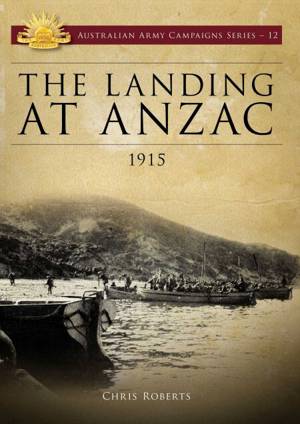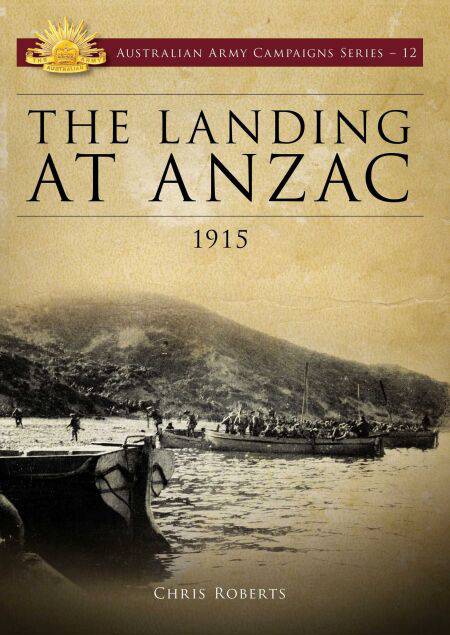
- Afhalen na 1 uur in een winkel met voorraad
- Gratis thuislevering in België vanaf € 30
- Ruim aanbod met 7 miljoen producten
- Afhalen na 1 uur in een winkel met voorraad
- Gratis thuislevering in België vanaf € 30
- Ruim aanbod met 7 miljoen producten
Zoeken
€ 6,76
+ 6 punten
Omschrijving
The Landing at ANZAC, 1915 challenges many of the cherished myths of the most celebrated battle in Australian and New Zealand history – myths that have endured for almost a century. Told from both the ANZAC and Turkish perspectives, this meticulously researched account questions several of the claims of Charles Bean’s magisterial and much-quoted Australian official history and presents a fresh examination of the evidence from a range of participants. The Landing at ANZAC, 1915 reaches a carefully argued conclusion in which Roberts draws together the threads of his analysis delivering some startling findings. But the author’s interest extends beyond the simple debunking of hallowed myths, and he produces a number of lessons from the armies of today. This is a book that pulls the Gallipoli campaign into the modern era and provides a compelling argument for its continuing relevance. In short, today’s armies must never forget the lessons of Gallipoli.
Specificaties
Betrokkenen
- Auteur(s):
- Uitgeverij:
Inhoud
- Aantal bladzijden:
- 188
- Taal:
- Engels
- Reeks:
Eigenschappen
- Productcode (EAN):
- 9781922132253
- Verschijningsdatum:
- 4/03/2015
- Uitvoering:
- E-book
- Beveiligd met:
- Adobe DRM
- Formaat:
- ePub

Alleen bij Standaard Boekhandel
+ 6 punten op je klantenkaart van Standaard Boekhandel
Beoordelingen
We publiceren alleen reviews die voldoen aan de voorwaarden voor reviews. Bekijk onze voorwaarden voor reviews.











